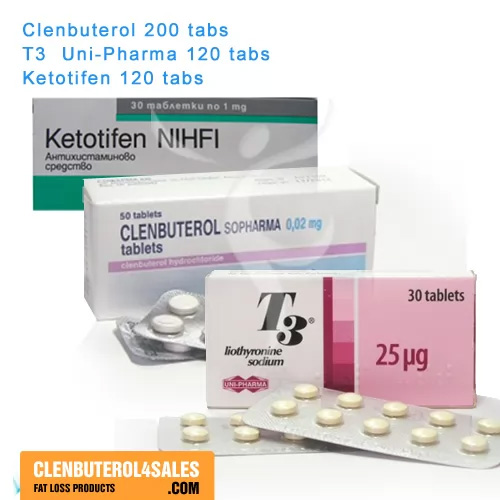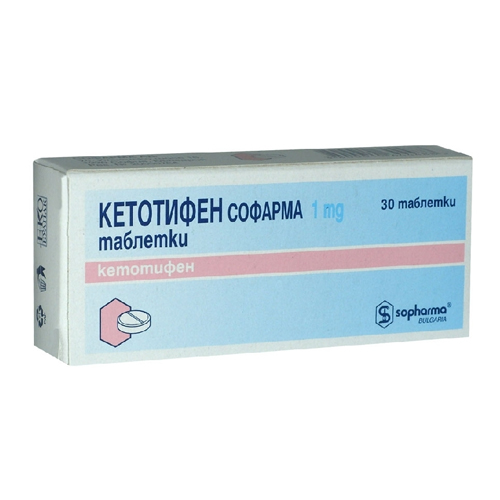Are you on a quest for effective weight management solutions? If so, you may have encountered various medications and supplements that promise to aid your journey. Among them are Ketotifen and T3 liothyronine sodium, two compounds gaining traction in the wellness community. While they serve different purposes individually, their combined powers might offer a new approach to achieving your weight goals. Let’s dive into how these substances work and what they could mean for your health.
Understanding Ketotifen and T3 liothyronine sodium
Ketotifen and T3 liothyronine sodium are two distinct compounds often discussed in weight management.
Ketotifen is primarily an antihistamine, traditionally used for its allergy-relieving properties. However, it has gained attention for its potential effects on appetite regulation and fat metabolism.
On the other hand, T3 liothyronine sodium is a synthetic form of thyroid hormone. It plays a crucial role in controlling metabolism by influencing how efficiently the body uses energy.
These medications may offer unique benefits when weight management strategies are considered. While Ketotifen can help curb unwanted cravings, T3 boosts metabolic processes to enhance calorie burning.
Understanding their functions provides insight into their combined potential impact on achieving weight goals effectively and safely.
Understanding Weight Management
Weight management is more than just a number on the scale. It involves balancing diet, exercise, and lifestyle choices, influencing overall health.
Understanding your body’s needs is crucial. Each individual has unique metabolic rates influenced by age, gender, and genetics. This means what works for one person might not work for another.
Healthy weight management also requires awareness of emotional triggers that can lead to overeating or unhealthy food choices. Addressing these behaviors often makes a significant difference in achieving long-term success.
Incorporating regular physical activity enhances metabolism and promotes muscle growth. Muscles burn more calories at rest than fat tissue, making regular exercise vital.
Sustainable weight management focuses on creating habits rather than following strict diets. Finding enjoyable activities and nutritious foods can make the journey feel less like a chore and more like an empowering lifestyle shift.
The Connection between T3 liothyronine sodium and Metabolism
T3 liothyronine sodium plays a crucial role in the body’s metabolic processes. As an active thyroid hormone, it significantly influences how your body converts food into energy.
When T3 levels are optimal, metabolism speeds up. This increase can lead to more efficient calorie burning and enhanced fat loss. People often notice changes in their energy levels, which can motivate them to be more physically active.
Moreover, T3 also impacts protein synthesis and the regulation of fats in the body. Encouraging these processes contributes to muscle maintenance while reducing excess fat storage.
Understanding this connection is essential for those looking to manage weight effectively. It highlights why proper thyroid function is vital for sustainable weight management strategies.
Benefits of Combining These Two Medications
Combining Ketotifen and T3 liothyronine sodium can create a powerful synergy for those seeking to manage their weight effectively. Each medication has unique properties that complement each other.
Ketotifen is an antihistamine known for reducing inflammation and promoting better sleep. Good rest is crucial for maintaining energy levels during weight loss efforts.
Meanwhile, T3 liothyronine sodium significantly boosts metabolism by increasing the rate at which your body burns calories. This enhanced metabolic state can lead to more efficient fat loss when combined with proper diet and exercise.
Together, these medications may help overcome common barriers in weight management—like cravings or excessive fatigue—allowing individuals to stay focused on their goals without unnecessary distractions. The combination also promotes a smoother transition into a healthy lifestyle, making it easier for users to stick with long-term plans.
The Role of Ketotifen in Weight Management
Ketotifen is often recognized for its antihistamine properties, but its role in weight management is gaining attention. This medication can influence appetite and fat storage by impacting histamine receptors.
Histamines play a crucial part in regulating various bodily functions, including metabolism. By blocking specific receptors, Ketotifen may help reduce the feelings of hunger that lead to overeating.
Additionally, some studies suggest that it might assist in enhancing energy expenditure. Combining with a balanced diet and exercise regimen could facilitate more effective weight loss results.
Users report experiencing fewer cravings while taking Ketotifen. This reduction can make sticking to dietary plans easier and contribute to overall weight management efforts.
Understanding how this medication fits into one’s lifestyle becomes crucial for those seeking sustainable change without drastic measures.
The Role of T3 Liothyronine Sodium in Weight Management
T3 liothyronine sodium plays a pivotal role in the body’s metabolism. This synthetic form of the thyroid hormone triiodothyronine is crucial for energy regulation and fat utilization. When levels are balanced, T3 can help enhance metabolic rate, leading to more effective calorie burning.
Many individuals struggling with weight management find that T3 supplementation can kickstart their metabolism. It encourages cells to convert food into energy rather than storing it as fat.
Moreover, T3 enhances the body’s ability to utilize nutrients efficiently. This means you’re not just consuming calories; your body is actively using them for fuel, which supports overall energy levels and performance during physical activities.
Incorporating T3 into a weight management plan may assist those with thyroid imbalances or slow metabolisms. It offers a targeted approach to promoting healthier body composition and effectively supporting weight loss efforts.

Body Building Supplements Market Size and Forecast 2021-2031
The Body Building Supplements Market Size and Forecast 2021-2031 paints an intriguing picture of an industry that is rapidly evolving, driven by an increasing awareness of fitness and wellness among consumers. As more individuals seek to enhance their physical performance and achieve their personal health goals, the market for these supplements has witnessed significant growth. Key players are innovating with new formulations such as plant-based proteins, pre-workout boosters, and recovery aids to cater to a diverse demographic that ranges from casual gym-goers to professional athletes.
This robust expansion is further fueled by trends in online retailing, social media influence on fitness culture, and a surge in demand for transparency regarding ingredient sourcing and nutritional benefits. Projections indicate substantial increases in value due to rising sales volumes and premium pricing strategies adopted by brands aiming for higher-quality offerings. Consequently, the Body Building Supplements Market Size and Forecast 2021-2031 reflects a dynamic landscape influenced by shifting consumer preferences towards sustainability and efficacy within their supplement choices.
Conclusion: Is This Combination Right for You?
Exploring the combination of Ketotifen and T3 Liothyronine Sodium for weight management presents an intriguing possibility. Each medication has unique mechanisms and benefits, which can be particularly effective when used together.
This combination might offer a new avenue to explore for those struggling with weight issues. However, it’s essential to consult healthcare professionals before starting any new treatment. Individual responses to these medications vary widely based on personal health history and goals.
Understanding how each component contributes to metabolism and appetite regulation is crucial in making informed choices about your health journey. The synergy between Ketotifen’s role in histamine modulation and T3 Liothyronine’s influence on metabolic rates could be the key some people need for successful weight management. Always weigh the potential benefits against possible side effects or interactions with other medications you may be taking.
Choosing the right approach involves careful consideration of all factors at play. Engage with a trusted medical professional who understands your unique situation before moving forward with this promising yet complex strategy for weight management.






